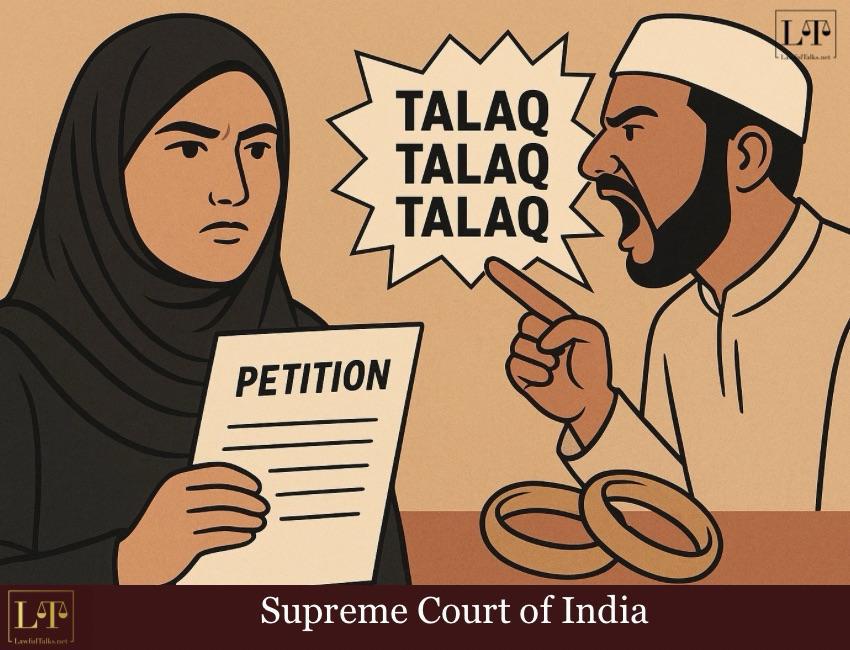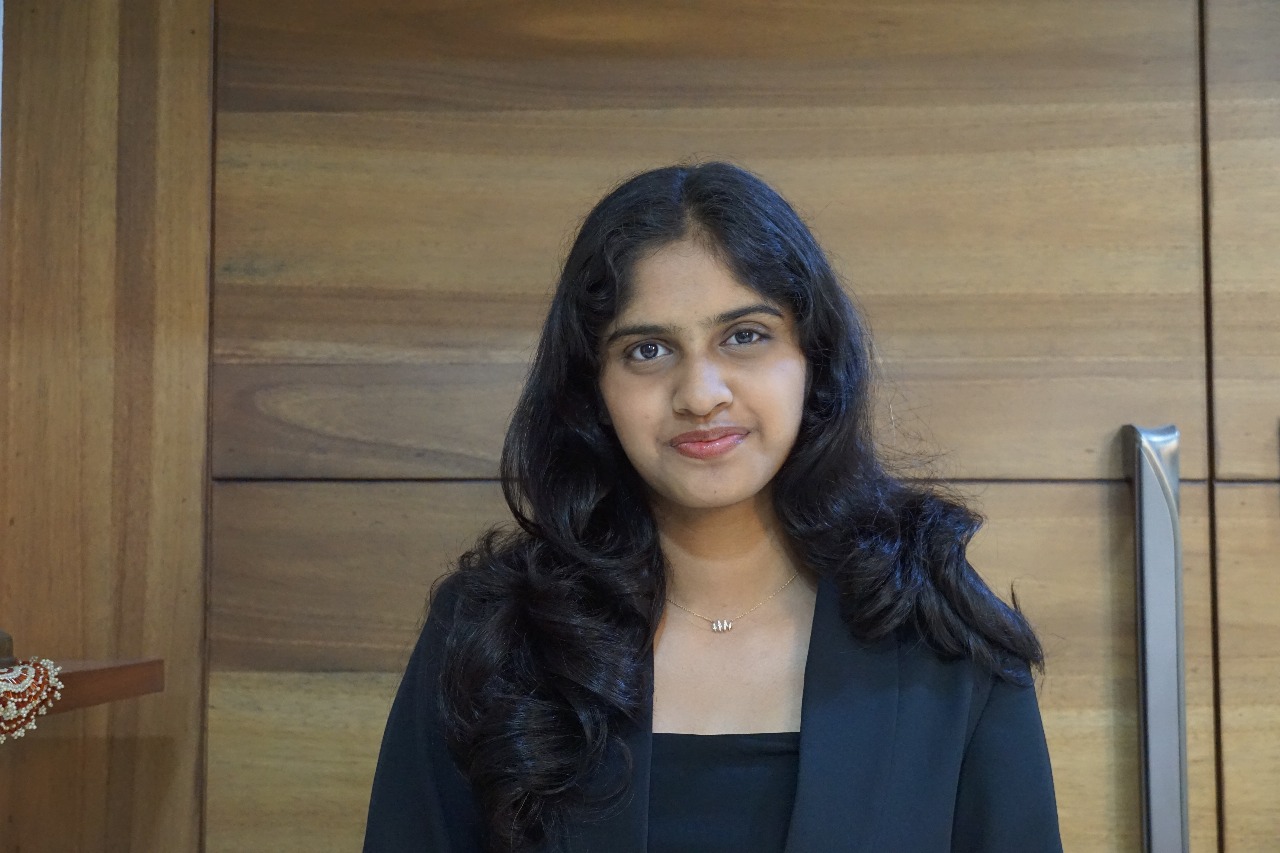Allahabad HC Sets Aside Afzal Ansari's Conviction, Allows Him to Continue as MP

The Supreme Court recently indicated a possibility of abolishing Talaq-e-Hasan, a Muslim practice where a man can divorce his wife by uttering the word "talaq" once a month for three months.

Background:
The case arose from a 2022 Public Interest Litigation (PIL) filed by journalist Benazeer Heena, who challenged Talaq-e-Hasan as unconstitutional, arguing that the practice is irrational, arbitrary, and violative of Articles 14, 15, 21, and 25 of the Constitution. In her petition, Heena also recounted personal allegations against her husband, claiming he issued a Talaq-e-Hasan notice through a lawyer after her family refused to pay dowry, and that she faced continued harassment from her in-laws.
The Bench of Justice Surya Kant, Justice Ujjal Bhuyan and Justice N Kotiswar Singh suggested that the issue could be referred to a five-judge bench. The Court invited the parties to submit notes outlining the major questions for consideration.
"Once you give us a brief note we will consider the desirability of referring to a 5 judge bench. Give us broadly the questions that may arise. Then we will see how those are predominantly legal in nature that the court must resolve," the Court stated.
The Court observed that since the practice has societal implications, judicial intervention may be necessary."Society at large is involved. Some remedial measures have to be taken. If there are gross discriminatory practices, then the court has to interfere," observed Justice Kant.
The judge questioned how a practice that undermines women's dignity can remain in a civilised society.
"What kind of thing is this? How are you promoting this in 2025? Whatever best religious practice we follow, is this what you allow? Is this how a dignity of a woman be upheld? Should a civilised society allow this kind of practice?" the judge asked.
In the case, Heena highlighted instances of mistreatment and assault by her husband and his family, mentioning that despite lodging an FIR and complaints with the Delhi Commission for Women, the police considered the practice valid under Sharia law.
Senior Advocate MR Shamshad, representing the husband, stated that in Islam, it is common to appoint a person to send a Talaq-e-Hasan notice, as was done here through a lawyer.
Justice Kant questioned why direct communication could not be made by the husband to the petitioner. "If talaq is to take place as per religious practice then the entire procedure has to be followed as it is prescribed... We will call (the husband) to Court," Justice Kant remarked.
Heena's counsel stated that because of how the talaq-e-Hasan notice was sent, she has been unable to prove the divorce, despite the husband remarrying.
"The problem started with the schools where I wanted to get my child admitted. Everywhere I said I was a divorcee, my papers were not accorded. Admission was rejected. I told the father has moved on, married again. I don’t know the technicalities," the counsel submitted.
The Court has now directed the counsel to file an application detailing what directions are needed and will take up the matter again next Wednesday. It also told the husband to follow the prescribed divorce procedure and to appear before the court at the next hearing.
Justice Kant observed that although Heena, as a journalist, has the ability to approach the Supreme Court, many women from marginalized backgrounds do not have such access and remain unheard.
"Today we have a journalist before us. What about those unheard voices living in remote areas?," he commented.
The petition cited the Supreme Court's decision in Prakash and Others v. Phulavati & Ors, arguing that marriage and inheritance laws should evolve over time, hence a PIL challenging personal laws to safeguard Muslim women's welfare is maintainable.
The practice known as "Unilateral Extra-Judicial Talaq" has been described as urgently requiring banning because it conflicts with human rights and equality and is unnecessary in Islam. It was argued that the practice is susceptible to misuse and discriminatory since only men can initiate it.
The petitioner further contended that freedom of conscience, profession, practice, and propagation of religion under Article 25 is not absolute.
Interestingly, in August 2022, another Bench of Justice Sanjay Kishan Kaul and Justice MM Sundresh, hearing the same case, considered Talaq-e-Hasan not prima facie improper and cautioned against using the case to push any agenda.
Order awaited.
Case Title: BENAZEER HEENA VERSUS UNION OF INDIA & ORS.

Nikita Muddalgundi
Second Year, B.A. LL.B student
Latest Posts
Categories
- International News 19 Posts
- Supreme Court 390 Posts
- High Courts 383 Posts



















































































































































































































































































































































































































































































































































































































































































































































































































